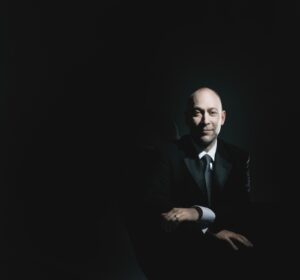In December, Early Music Vancouver Pacific Baroque Series returns to Victoria to present a collection of Bach’s more festive compositions. Festive Cantatas: J.S. Bach Magnificat & Cantata BWV 110 (‘Let Our Mouth Be Full of Laughter’) explores the human side of the Christmas story by blending instrumentation and vocals to create a polyphonic experience.
Pacific Baroque Orchestra director Alexander Weimann says he chose these pieces because of their momentous power to make an emotional impact and really move the listener.
“I chose them because of their, I would almost call it a physical power,” he says. “I find it difficult to listen to them without feeling the impact, without being affected somehow, and those pieces are just joy and dance, really. They are so exhilarated.”

Weimann says that performing the music is a kind of spiritual experience, but not in a theological sense. It’s about connecting with other people and rejoicing in the raw emotion of the human condition.
“In the moment that you perform it, it’s really about very deep primary emotions, like joy. If you look at it, every spiritual experience we have in life is an experience with people,” Weimann says. “Spirituality we experience through other people, and so to me that’s what it is, it’s the message that being human and procreating and giving birth or dying, all of those [are] spiritual, and in this case, it’s related to the birth, excitement about new life. This is something that we share, it’s a story that we need to hear, and Bach tells it really beautifully. After almost three centuries, it’s amazingly alive still.”
Creating a piece of living music from an old sheet of paper is challenging and thrilling, says Weimann, and it’s a new experience, a new journey of discovery, every time.
“I enjoy listening to music come alive. Sometimes if you do pieces that are never recorded, that they exist only on paper, that’s super exciting,” he says. “The object is the piece, and understanding what the composer meant with it, and what it meant to the people, and what it can mean to us, and then on the practical side, to navigate that shape that every group of performers is, and make it happen, yeah, it’s very exciting. It really is different every time, even without the intention of it being different every time. It’s like you drive the same roads, but it’s never the same twice.”
Weimann is also a conductor, and he believes that in every performance of a piece, it’s the conductor’s job to grasp the disparate pieces—the different instruments and vocalists—and pull them together tightly to create a cohesive whole that does justice to the music on the sheet. The magic of live music is about the energy created and shared between the musicians and the audience, he says, and that’s a timeless experience that can never be replicated by tuning in remotely.
“It’s something that I think we almost need to learn again, after the pandemic, to treasure the singularity of the moment, because we very much rely on either the digital streaming of concerts, if you’re into that, or a recording, but to be in one room, not just one Zoom room, but one room, really, we need to appreciate that,” Weimann says. “There’s something about hearts beating in the same room, that experience of simultaneity, in a way. It’s all energy. I think energy is the only reality, the only matter, and that’s why I think that music is so charged, that we feel that energy, and even after hundreds of years, it’s still really electrifying music.”
Festive Cantatas
7:30 pm Friday, December 16
Various prices, Christ Church Cathedral
pacbaroque.com/festive-cantatas-2022
